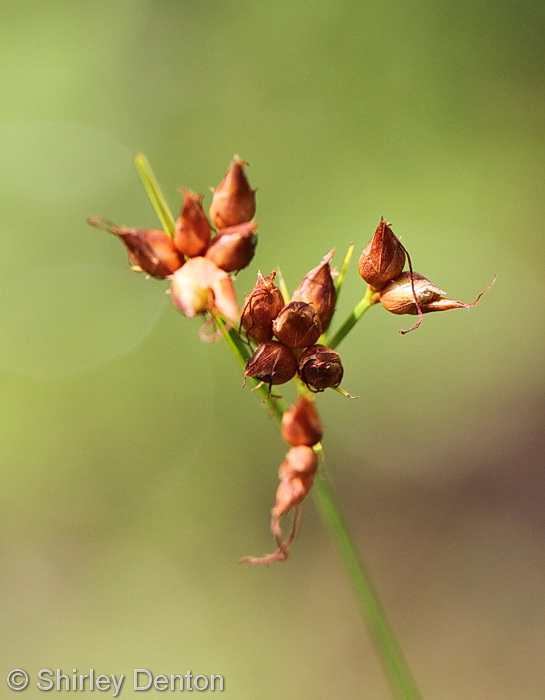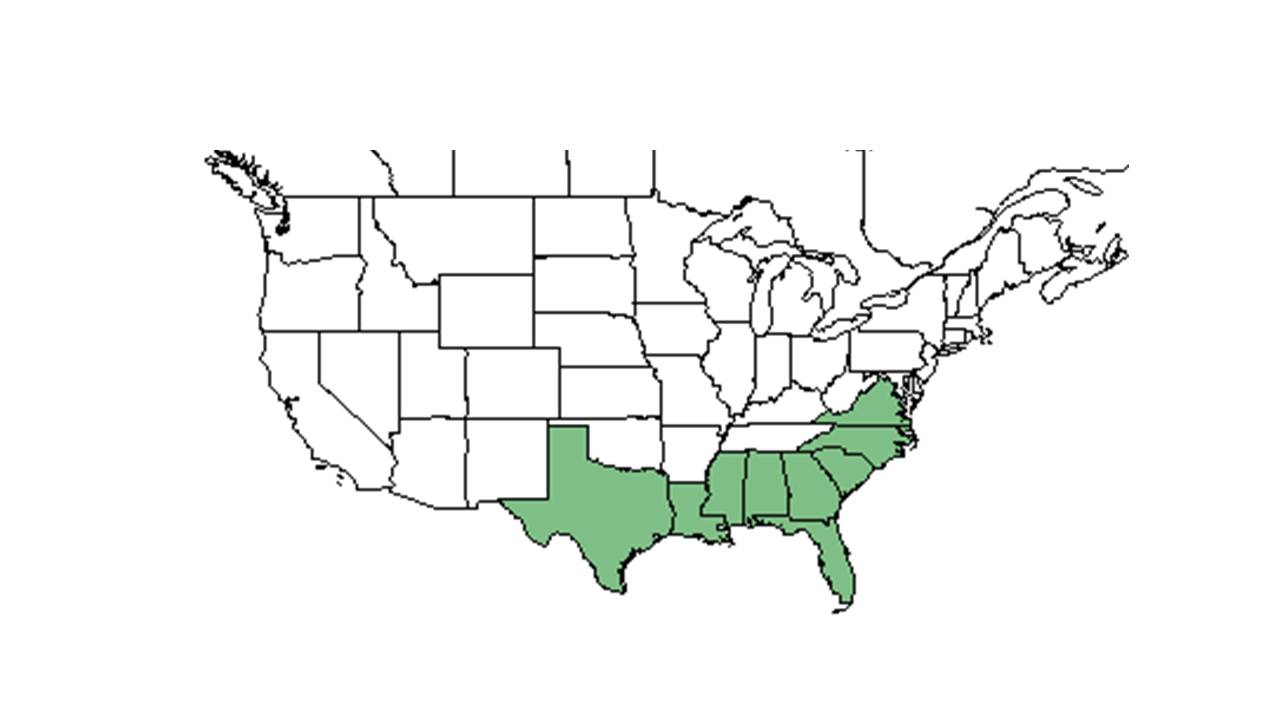Difference between revisions of "Rhynchospora grayi"
Juliec4335 (talk | contribs) |
|||
| Line 32: | Line 32: | ||
Soil types include dry sand, wet peaty soil, coarse sand, Humaqueptic Psammaquents, and sandy xeric soils. <ref name="FSU Herbarium"/> | Soil types include dry sand, wet peaty soil, coarse sand, Humaqueptic Psammaquents, and sandy xeric soils. <ref name="FSU Herbarium"/> | ||
| + | |||
| + | ''Rhynchospora grayi'' is frequent and abundant in the Peninsula Xeric Sandhills community type as described in Carr et al. (2010).<ref>Carr, S.C., K.M. Robertson, and R.K. Peet. 2010. A vegetation classification of fire-dependent pinelands of Florida. Castanea 75:153-189.</ref> | ||
===Phenology=== <!--Timing off flowering, fruiting, seed dispersal, and environmental triggers. Cite PanFlora website if appropriate: http://www.gilnelson.com/PanFlora/ --> | ===Phenology=== <!--Timing off flowering, fruiting, seed dispersal, and environmental triggers. Cite PanFlora website if appropriate: http://www.gilnelson.com/PanFlora/ --> | ||
Revision as of 15:28, 17 July 2020
| Rhynchospora grayi | |
|---|---|

| |
| Photo by Shirley Denton (Copyrighted, use by photographer’s permission only), Nature Photography by Shirley Denton | |
| Scientific classification | |
| Kingdom: | Plantae |
| Division: | Magnoliophyta – Flowering plants |
| Class: | Liliopsida – Monocotyledons |
| Order: | Cyperales |
| Family: | Cyperaceae |
| Genus: | Rhynchospora |
| Species: | R. grayi |
| Binomial name | |
| Rhynchospora grayi Kunth | |

| |
| Natural range of Rhynchospora grayi from USDA NRCS Plants Database. | |
Common name: Gray's beaksedge
Contents
Taxonomic notes
Description
A description of Rhynchospora grayi is provided in The Flora of North America.
Distribution
Ecology
R. grayi was a species identified as indicating a recovered condition and perhaps high quality groundcover.[1]
Habitat
In the Coastal Plain in Florida and Georgia, R. grayi can be found in longleaf pine forests, longleaf pine-wiregrass ridges, pine-oak forests, burned pine flatwoods, dry pine barrens, recently burned wiregrass/pinewoods, peaty depressions in flatwoods, sandy lake shores, turkey oak-slash pine woodlands, and sandy xeric bluffs bordering creeks.[1][2] It can also be found in sands of powerline corridors, and sandy fallow fields. Associated species include Pinus palustris, Aristida stricta, Quercus laevis, Q. geminata, Q. margaretta, Q. incana, Licania, Stillingia sylvatica, Tragia smallii, T. urens, Rhynchosia reniformis, Croton argyranthemus and sand pine. [2]
Soil types include dry sand, wet peaty soil, coarse sand, Humaqueptic Psammaquents, and sandy xeric soils. [2]
Rhynchospora grayi is frequent and abundant in the Peninsula Xeric Sandhills community type as described in Carr et al. (2010).[3]
Phenology
R. grayi has been observed flowering from April through July and in October, and fruiting April through July.[2][4]
Seed dispersal
This species is thought to be dispersed by consumption by vertebrates. [5]
Conservation and management
Cultivation and restoration
Photo Gallery
References and notes
- ↑ 1.0 1.1 Archer, J. K., D. L. Miller, et al. 2007. Changes in understory vegetation and soil characteristics following silvicultural activities in a southeastern mixed pine forest. Journal of the Torrey Botanical Society 134: 489-504.
- ↑ 2.0 2.1 2.2 2.3 Florida State University Robert K. Godfrey Herbarium database. URL: http://herbarium.bio.fsu.edu. Last accessed: July 2015. Collectors: Loran C. Anderson, Robert K. Godfrey, Robert Kral, A. H. Curtiss, Sidney McDaniel, James R. Burkhalter, Steve L. Orzell, Edwin L. Bridges, William Reese, Paul Redfearn, R. F. Thorne, R. A. Davidson, A. Gholson Jr., J. M. Kane, R. A. Norris, Steve L. Orzell, Helen Roth, Chris Buddenhagen, John J. Schenk, Alice Mallory. States and Counties: Florida: Bay, Calhoun, Citrus, Clay, Duval, Escambia, Gadsden, Gilchrist, Hamilton, Holmes, Leon, Levy, Liberty, Okaloosa, Polk, Santa Rosa, Taylor, Wakulla, Washington. Georgia: Baker, Grady, Thomas. Compiled by Tall Timbers Research Station and Land Conservancy.
- ↑ Carr, S.C., K.M. Robertson, and R.K. Peet. 2010. A vegetation classification of fire-dependent pinelands of Florida. Castanea 75:153-189.
- ↑ Nelson, G. PanFlora: Plant data for the eastern United States with emphasis on the Southeastern Coastal Plains, Florida, and the Florida Panhandle. www.gilnelson.com/PanFlora/ Accessed: 13 DEC 2016
- ↑ Kirkman, L. Katherine. Unpublished database of seed dispersal mode of plants found in Coastal Plain longleaf pine-grasslands of the Jones Ecological Research Center, Georgia.